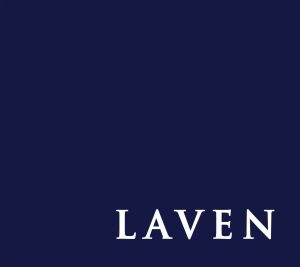The 2020 Stewardship Code is the successor to the 2012 Stewardship Code. It represents a major update over the previous code and covers 12 key Environmental and Social Governance (“ESG”) principles that asset managers or asset owners will need to adhere to if they wish to become a signatory and 6 principles for service providers wishing to sign up. The 2020 code will officially replace the 2012 Stewardship Code in the summer of 2021 when the first list of signatories is published.
The code became official in 2020 and firms could begin adhering to it and making their applications to be recognised as signatories with the first deadline for submission being 31 March 2021.
Is the 2020 Stewardship Code Voluntary?
Becoming a signatory to the code is voluntary, although Financial Conduct Authority (“FCA”) authorised asset managers are expected to disclose whether the firm is a signatory, their commitment to the principles involved and where they do not commit to the code, the alternative investment strategy.
What is the deadline?
The deadline to be an initial signatory is 31 March 2021, with a later deadline of 31 October 2021 for firms working on different reporting periods or who miss the initial deadline but wish to sign up during the first year.
What are the principles of the Stewardship Code?
The principles of the code are as follows:
| Principles | For Asset Owners and Asset Managers | For Service Providers |
| 1. Purpose, strategy and culture. | ✓ | ✓ |
| 2. Governance, resources and incentives. | ✓ | ✓ |
| 3. Conflicts of Interest. | ✓ | ✓ |
| 4. Promoting well-functioning markets. | ✓ | ✓ |
| 5. Review and Assurance. | ✓ | ✓ |
| 6. Client and beneficiary needs. | ✓ | ✓ |
| 7. Stewardship, investment and ESG integration | ✓ | |
| 8. Monitoring managers and service providers | ✓ | |
| 9. Engagement | ✓ | |
| 10. Collaboration | ✓ | |
| 11. Escalation | ✓ | |
| 12. Exercising rights and responsibilities | ✓ |
How does this compare to the 2012 Stewardship Code?
Compared to the 2012 Stewardship Code there have been several important changes. For the first time, the code can now apply to asset owners and service providers, with asset owners following the 12 principles applicable to asset managers, and service providers having a unique list of 6 principles. The 2020 Stewardship Code also now introduces a definition of stewardship; stewardship is defined as the:
“responsible allocation, management and oversight of capital to create long term value for clients and beneficiaries leading to sustainable benefits for the economy, the environment and society”.
Under the 2012 Stewardship Code signatories were expected to report on policies, but under the 2020 Code, there is an initial and annual reporting requirement that covers firms actions during each reporting period. The final major change is that the list of principles has grown from 7 to 12, reflecting the growing scope and importance of ESG issues to investors.
How to become a 2020 Stewardship Code signatory.
To become a signatory, a firm must submit a report covering the 12 principles to the Financial Reporting Council, the Council will then review and approve. Reports should, for each principle, provide the context of a firms implementation of this principle, the activities conducted relating to that principle, the outcomes that have been achieved and how they compare with the desired outcomes. Firms whose initial application is unsuccessful are encouraged to apply again at the next reporting deadline.
The Council have set out their expectations for these reports, and that they need to be more than just high-level overviews of a firms commitment to ESG and upholding of the principles. Firms are expected to provide reporting on actions taken by the firm directly relating to the principles, the outcomes of these actions and how this fits in with the Code, backed up by evidence and data. Firms are not expected to have fully implemented every principle but are expected to address where the firm currently is on these issues and how the firm will integrate the principles into its process over the coming years.
Once the Council has approved a firm as a signatory, the report will be made publicly available as the Council is hoping that the reports can act as a resource for ESG conscious investors to assess a firm before making their investments, rather than just being a simple yes or no on whether a firm is a signatory.
All signatories will be required to complete a report annually, covering the firms’ actions during the year in the same style as the initial report to remain a signatory to the code.
With ESG issues becoming a bigger investment priority, particularly around issues of climate change, being a signatory of the code is a good way for a firm to demonstrate its commitment to these issues and ensuring that the processes of the firm match it’s goals and ambitions when it comes to ESG.





